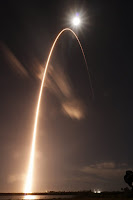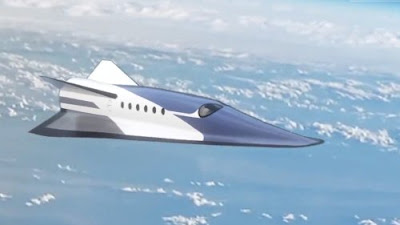Journey to the Sun
NASA and ESA's Blackbird Mission
Unprecedented Solar Orbiter Probe
NASA and the European Space Agency have successfully launched the Solar Orbiter on a journey to the Sun, to take unprecedented views of its blazing solar poles. The Solar Orbiter took off on top of an Atlas 5 rocket. The Orbiter separated from the rocket within 53 minutes to go into space flight as planned and is now in communications with NASA. All of this happened in the past few days. This unique mission is going very well as it moves along on a very long journey to the Sun.
Mission Unprecedented
This US and European mission is unprecedented. It's expected to help scientists understand how the Sun's massive amount of energy affects humans in space and how it impacts all of us on the Earth. The mission will provide unique images, views and data of the sun's blazing pole regions, which are critical sources of data.
Ten Year Journey
The orbiter is equipped with awesome equipment including an array of solar panels and antennas. The journey to the Sum will take ten years. The orbiter will position at 26 million miles from the Sun, which is 95% of the distance between the Earth and the Sun It will map the Sun's poles which have a concentrated source of solar winds. Those winds are high impact. They penetrate our atmosphere and even can impact satellites.
Main Goal
NASA and ESA scientists want to determine how the Sun creates and controls the heliosphere, which is the massive bubble of protection that surrounds the solar system. They want to know why the bubble changes over time. NASA and ESA scientists believe the answer may be found in the Sun's poles. Those views will first be available from the probe in 2025. Exciting new science for all of us to observe from Earth!
Key Goals to Get This Off the Ground
The key to this mission, that was first proposed in 1999, was to develop a thermal protection system that can withstand the intense heat of the sun. The Orbiter was built in Europe. It's a great example of US-European space exploration. The cost of the Solar Orbiter hurtling into space is $1.5 billion. For a free look at my book "Top List of Best New Innovations", go to https://read.amazon.com/kp/embed?asin=B07NTWC3FW&preview=newtab&linkCode=kpe&ref_=cm_sw_r_kb_dp_9NCrEb6NCGK0M
amazon.com/author/ekane
Source: NASA Launch of Solar Orbiter
Unprecedented Solar Orbiter Probe
NASA and the European Space Agency have successfully launched the Solar Orbiter on a journey to the Sun, to take unprecedented views of its blazing solar poles. The Solar Orbiter took off on top of an Atlas 5 rocket. The Orbiter separated from the rocket within 53 minutes to go into space flight as planned and is now in communications with NASA. All of this happened in the past few days. This unique mission is going very well as it moves along on a very long journey to the Sun.
Mission Unprecedented
This US and European mission is unprecedented. It's expected to help scientists understand how the Sun's massive amount of energy affects humans in space and how it impacts all of us on the Earth. The mission will provide unique images, views and data of the sun's blazing pole regions, which are critical sources of data.
Ten Year Journey
The orbiter is equipped with awesome equipment including an array of solar panels and antennas. The journey to the Sum will take ten years. The orbiter will position at 26 million miles from the Sun, which is 95% of the distance between the Earth and the Sun It will map the Sun's poles which have a concentrated source of solar winds. Those winds are high impact. They penetrate our atmosphere and even can impact satellites.
Main Goal
NASA and ESA scientists want to determine how the Sun creates and controls the heliosphere, which is the massive bubble of protection that surrounds the solar system. They want to know why the bubble changes over time. NASA and ESA scientists believe the answer may be found in the Sun's poles. Those views will first be available from the probe in 2025. Exciting new science for all of us to observe from Earth!
Key Goals to Get This Off the Ground
The key to this mission, that was first proposed in 1999, was to develop a thermal protection system that can withstand the intense heat of the sun. The Orbiter was built in Europe. It's a great example of US-European space exploration. The cost of the Solar Orbiter hurtling into space is $1.5 billion. For a free look at my book "Top List of Best New Innovations", go to https://read.amazon.com/kp/embed?asin=B07NTWC3FW&preview=newtab&linkCode=kpe&ref_=cm_sw_r_kb_dp_9NCrEb6NCGK0M
amazon.com/author/ekane




Comments
Post a Comment